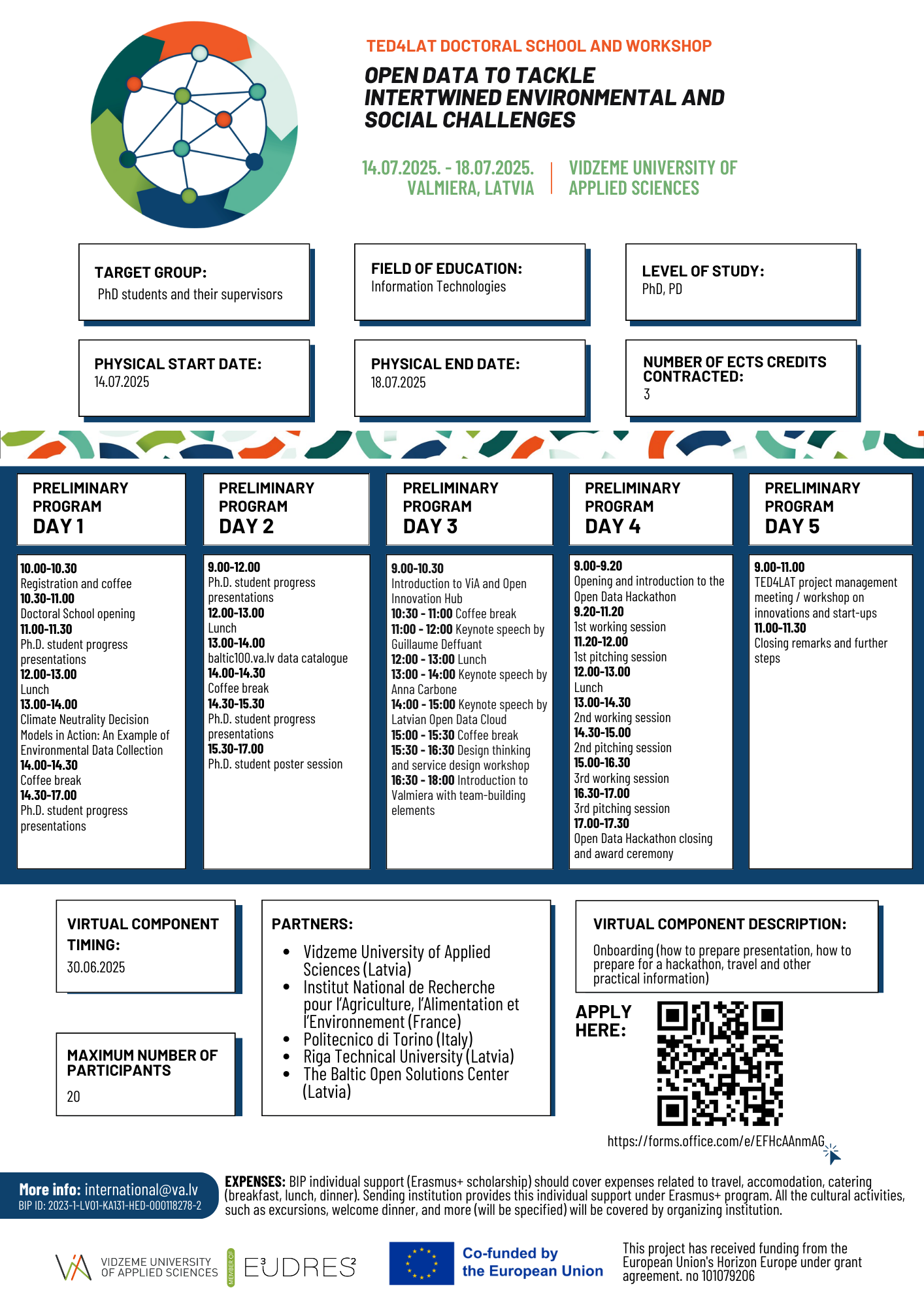From 14 to 18 July Vidzeme University of Applied Sciences (ViA) will hold Ted4Lat Doctoral School and Workshop “Open Data to tackle intertwined environmental and social challenges”.
The main objective of the doctoral summer school is to bring students and professors working with data together. Students will give their doctoral thesis progress presentations as well as work in teams on new open data solutions, while professors will give valuable feedback and work as mentors.
“The Doctoral Summer School is intended to give doctoral students and degree candidates a boost in developing their dissertation work, as well as to promote skills in defining innovative products, which are essential for modern science that must become increasingly closer to society. To achieve these goals, doctoral students and degree candidates will have the opportunity to present progress reports and participate in a data Hackathon. Additionally, the program includes several invited speaker presentations on working with data in current research projects, as well as on specific data-related topics,” says SSII director, lead researcher, Ph.D. Oskars Java.
Students will participate in lectures, workshops and a Hackathon not only to learn on data usage as a driving force of digital transformation but to innovate themselves.
Main Fields of Education: Information and Communication Technologies; Engineering, Manufacturing and Construction
Partners:
- Vidzeme University of Applied Sciences (Latvia)
- Institut National de Recherche pour l’Agriculture, l’Alimentation et l’Environnement (France)
- Politecnico di Torino (Italy)
- Riga Technical University (Latvia)
- The Baltic Open Solutions Center (Latvia)
Maximum number of participants: 20
This project has received funding from the European Union's Horizon Europe under grant agreement. no 101079206
What is Blended Intensive Program – BIP? - These are short, intensive programmes that use innovative ways of learning and teaching, including the use of online cooperation. The programmes may include challenge-based learning where transnational and transdisciplinary teams work together to tackle challenges for example those linked to the United Nations’ sustainable development goals or other societal challenges identified by regions, cities or companies. The intensive programme should have added value compared to existing courses or trainings offered by the participating HEIs and can be multiannual. By enabling new and more flexible mobility formats that combine physical mobility with a virtual part, blended intensive programmes aim at reaching all types of students from all backgrounds, study fields and cycles. Groups of higher education institutions will have the opportunity to organise short blended intensive programmes of learning, teaching and training for students and staff. During these blended intensive programmes, groups of students and/or staff as learners will undertake a short-term physical mobility abroad combined with a compulsory virtual component facilitating collaborative online learning exchange and teamwork. The virtual component must bring the learners together online to work collectively and simultaneously on specific assignments that are integrated in the blended intensive programme and count towards the overall learning outcomes. In addition, blended intensive programmes can be open to student and staff from any HEI, including local students and local staff. Blended intensive programmes build capacity for developing and implementing innovative teaching and learning practices in the participating HEIs (ERASMUS+ programme guide 2024, p.52)



